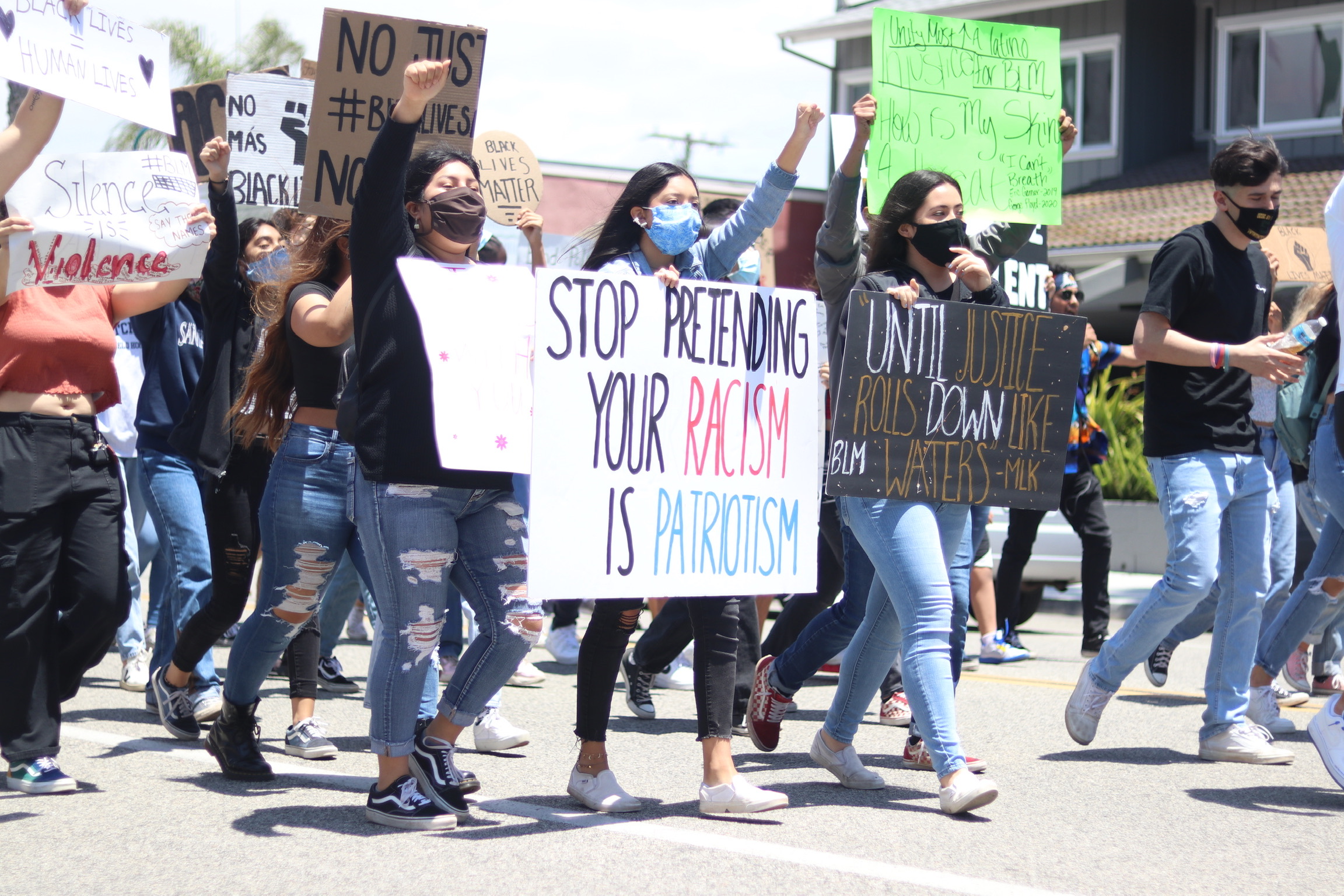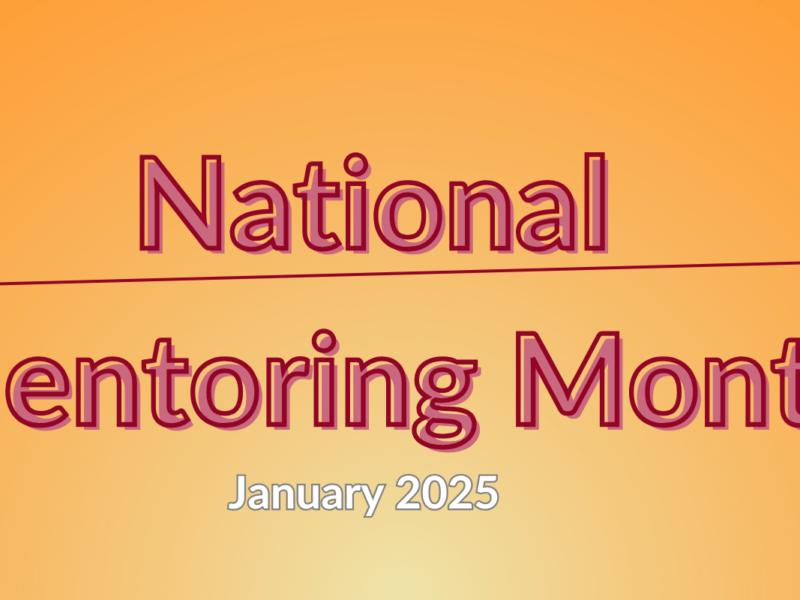Diversify Our Narrative
How Girls Inc. prepared a group of young women to address racism in their local community
Diversify Our Narrative (DON) is a nationwide, student-led campaign aimed at addressing systemic racism in education by demanding diversity in texts, authors, and cultural representation in public school curricula. The local Carpinteria, California chapter of Diversify Our Narrative was founded by five former and current Girls Inc. girls; Alitza (18), Ashley (24), Ana (21), Laura (17), Isa (17), and their friend Sophia (20). All six young women drew inspiration from the Black Lives Matter movement which swept across the country this past summer, and used the momentum and their passion from participating in the movement to address aspects of racism in their local community. Recently, the Girls Inc. Public Policy team had the opportunity to meet with Alitza, Ashley, Ana, Laura, Isa, and Sophia, to discuss their connection to DON and how their years at Girls Inc. prepared them to take a stand to re-create the prevailing narrative in Carpinteria schools.
Tell us about how you became involved in Diversify Our Narrative. Why is this student-led initiative to fight for racial justice through anti-racist and diverse texts in schools important to you?
Laura: “We started advocating for racial justice at the beginning of the summer, during the Black Lives Matter protests. There isn’t a Black population in our school at all, or in our district, and a lot of times in our community people ignore big issues when it comes to social justice and systemic change, so we decided to take matters into our own hands and not let it slide this time. Sophia was the first to find out about the Diversify Our Narrative movement on social media, and she reached out to the rest of us because she thought it would be beneficial in our community. Diversify Our Narrative is important to us because over 70% of our school is Latinx, and being a Latina myself, I never saw myself in what I was reading, and because of this I never resonated with what I was reading. Students should be able to see themselves in what they are reading.”
Ashley: “This initiative is really important to me because when my sister was in high school, she rented out a library copy of To Kill A Mockingbird. A few spaces above her name was our aunt’s name, who is 20 years older than us. We thought it was so cool at the time, and now when I look back, that’s not cool, it’s not cool that we have the exact same education as our aunt, who is significantly older than us. When my daughter goes to school in 10-15 years, I don’t want her name to just be under mine. Clearly our school district hasn’t done anything to cultivate and diversify our education in the past 50 years, so I really want to see a change in the system, especially since I have a daughter who is entering the district next year. She doesn’t deserve the education that I got, that we all got.”

“Students should be able to see themselves in what they are reading.”
When was the first time you read a book in school that was not written by a white author? How did reading primarily white authors in school impact you?
Alitza: “The first time I read a book in school by a non-white author was my junior year of high school in my AP Language class. It was called Things Fall Apart by Chinua Achebe, it was about an African man living in Africa during the time when Britain was colonizing. That was my first time actually reading a book by a non-white author, and the only time. I find that really sad because we should have more diverse types of authors, we should be reading books by people who look like me, by people of color. I feel, quite honestly, that we have read so many books by white authors that we were forced to accept their narrative, and accept that yes this was wrong, but it was okay in their time. I think it’s time that we stop making excuses for these stories by white authors, because it’s time to be honest about our history, no matter how racist it is. It’s important to push that information out.”
Ana: “Things Fall Apart is all I remember from what I read in school as well. All throughout high school and when I entered college, I was wondering, ‘Why didn’t I read a book that reflected my culture?’ My town is majority Latino, why am I only getting one lesson in elementary school about what Dia de Los Muertos is, when there is so much more history there? By the time I graduated high school, it made me question whether my culture and my culture’s history was even relevant to today’s society. It made me accept, in the back of my mind, that my heritage isn’t important enough to be taught in elementary, middle, and high school. This is why I wanted to join Diversify Our Narrative, I did not want to accept that fact anymore.”
What is the Carpinteria chapter of Diversify Our Narrative fighting for currently? What have you learned through your advocacy? Have there been any wins along the way?
Laura: “Over the past few months, Diversify Our Narrative fought for an ethnic studies course at our high school. The Superintendent of the Carpinteria Unified School District reached out to Isa and me, and she asked us to put together some demands and present them to the school board about how the district can be more inclusive and culturally sensitive. We put together a presentation, and one of our requests was an ethnic studies class. The school said their budget was too tight, and there was no room to hire anyone to teach the ethnic studies course, so I did some research and asked if one of our English teachers could teach an ethnic literature class, instead of a normal English class. The past two months we’ve been really busy recruiting people to sign up for the ethnic literature class, and getting the school board to agree. Finally, after a few months of meeting with the school board and petitioning, we were able to get an ethnic literature course passed! So this was definitely a big win. We’re also currently doing a fundraiser to provide financial support for teachers to buy new, POC-centered books, and we’ve raised over $350.”

“My time at Girls Inc. inspired me to become involved in Diversify Our Narrative because of the lessons the Girls Inc. Girls’ Bill of Rights taught me.”
How did your time at Girls Inc. inspire you to become involved in Diversify Our Narrative? How do you see the missions of Diversify Our Narrative and Girls Inc. being connected?
Ana: “My time at Girls Inc. inspired me to become involved in Diversify Our Narrative because of the lessons the Girls Inc. Girls’ Bill of Rights taught me. The Girls Inc. Girls’ Bill of Rights codifies the rights that all girls should have. Two rights stuck in my mind, first that ‘Girls have the right to have confidence in themselves and to be safe in the world,’ and second, ‘Girls have the right to be themselves and to resist gender stereotypes.’ I grew up for 12 years with Girls Inc., and I now see myself using the advocacy skills that I learned throughout my time there.”
Laura: “Last year was my advocacy year for the Eureka! Program at Girls Inc. We went to Washington D.C. and spoke to Representatives and Senators in their offices. At the moment, I thought it was really cool, but I didn’t realize how much of an impact it had on me until a few weeks ago, when I realized that it had only been a year later, and I’m doing all of this advocacy work in my community.
“Girls Inc. was also where I started to realize that our school system was designed to highlight a specific group of people, and that our curriculum was focused on Eurocentric, white people. Girls Inc. was the first place where the words ‘cultural appropriation’ were brought up in any educational space for me. That was where I first learned about it, through open and honest conversations in a safe space. With Girls Inc., having those uncomfortable conversations was where we really learned about the power of our voices, and I can confidently say I wouldn’t be doing this right now if it wasn’t for Girls Inc.”
Isa: “For me personally, it started in 7th grade. Before I joined the Eureka! program at Girls Inc., I was a very shy girl, I would be afraid to speak out or do public speaking. Throughout my years in the Eureka! program, my public speaking skills have grown, and now I’m not afraid to speak my mind.
“If I was never in Girls Inc., I would never have the confidence to do what I am doing now in my community. I wouldn’t have the skills, I wouldn’t know how to speak to these people. Girls Inc. inspired and shaped who I am now.”
**********
Alitza, Ashley, Isa, Ana, Laura, and Sophia have certainly made significant contributions to their local Carpinteria community. Moving forward, they hope to recruit more students to the initiative and continue working with Carpinteria administrators, parents, and teachers, to improve BIPOC representation in the curricula and education.
To get involved with Diversify Our Narrative and find a chapter near you, click here.



